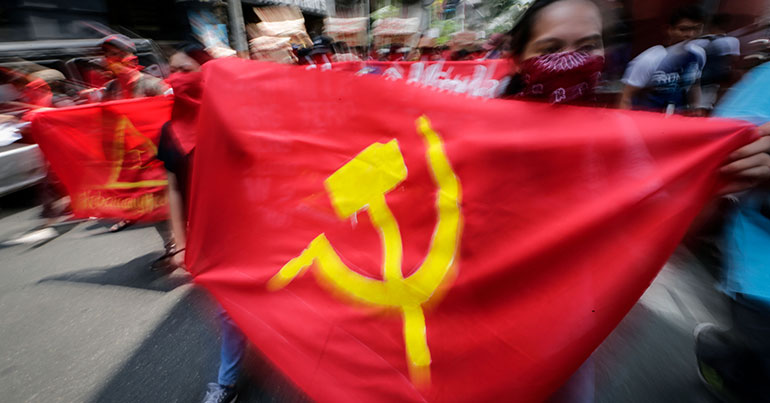The leader of the communist party of the Philippines has followed in Philippine President Rodrigo Duterte’s footsteps and reaffirmed his commitment to the country’s stuttering peace process

The leader of the communist party of the Philippines Jose Maria Sison announced on Tuesday that negotiators from the political arm of his rebel grouping were ready to resume peace talks with Philippine President Rodrigo Duterte’s administration, after the Philippine leader appeared to leave the door open for a return to the negotiating table during a speech he made earlier that day.
“If [the government is] willing, then the National Democratic Front of the Philippines (NDFP) is also willing and ready to negotiate with them,” Sison said in a statement on Tuesday, before blaming the government and the Philippine military for “interrupting, delaying and even repeatedly terminating the peace negotiations” by pushing NDFP members away from the negotiating table.
Sison’s statement followed a speech made by Duterte earlier on Tuesday, in which the Philippine leader appeared to extend an olive branch to the rebels, less than six months after he abruptly brought an end to the most recent round of peace talks.
“You know, we are not enemies. Even if I want to fight, my heart tells me that I am killing my fellow Filipinos. But the problem is you are doing the same. I want to talk peace with you,” Duterte was quoted by the Philippine Star as saying during an agriculture event in Bongabong.
Finding a peaceful resolution to the country’s decades-long conflict with the communists has been one of Duterte’s key objectives since assuming the presidency in 2016, a goal he seemingly made significant strides towards achieving last April, when government troops and rebels agreed to a temporary cease-fire during talks held in the Netherlands.
At the time, government negotiator Jesus Dureza told the New York Times that previous talks had “never gone this far” and that he was increasingly confident that hostilities would soon come to an end.
Hopes of a speedy resolution to the conflict, however, were soon dashed.
In November, Duterte was moved to terminate negotiations after a 4-month-old baby girl and her family were killed in Talakag town by stray bullets during a rebel ambush of a nearby police car.
In a statement at the time, Duterte asserted that the country’s communist party “failed to show its sincerity and commitment in pursuing genuine and meaningful peace negotiations as it engaged in acts of violence and hostilities.”
That same day, 15 communist guerrillas were killed in a clash with Philippine troops just south of Manila.
Since then, Duterte has said that female rebels should be shot in the genitals to render them “useless”, offered a $384 bounty for each communist rebel killed, and asked a local court to declare the Communist Party of the Philippines (CPP) and its armed wing, the New People’s Army (NPA), “terrorist” bodies.
His latest overture to the rebels was advanced on the condition that they agreed to a cease-fire, stopped collecting revolutionary taxes and abandoned their proposal for the creation of a “coalition government”.
Negotiations between the government and the communist rebels have been on and off since Norway first brokered talks in 1986.
Philippines communist insurgency
Duterte and rebels express willingness to resume peace talks
The leader of the communist party of the Philippines has followed in Philippine President Rodrigo Duterte's footsteps and reaffirmed his commitment to the country's stuttering peace process

